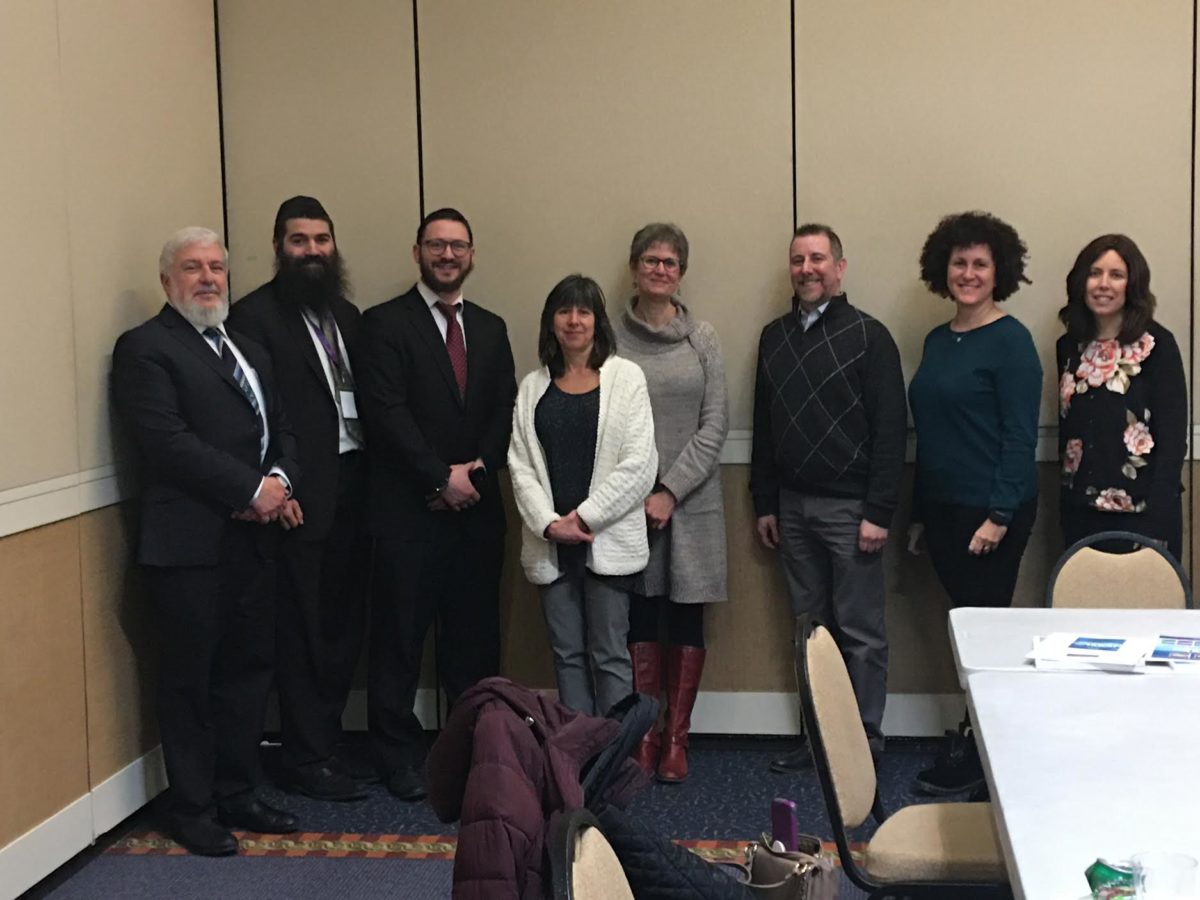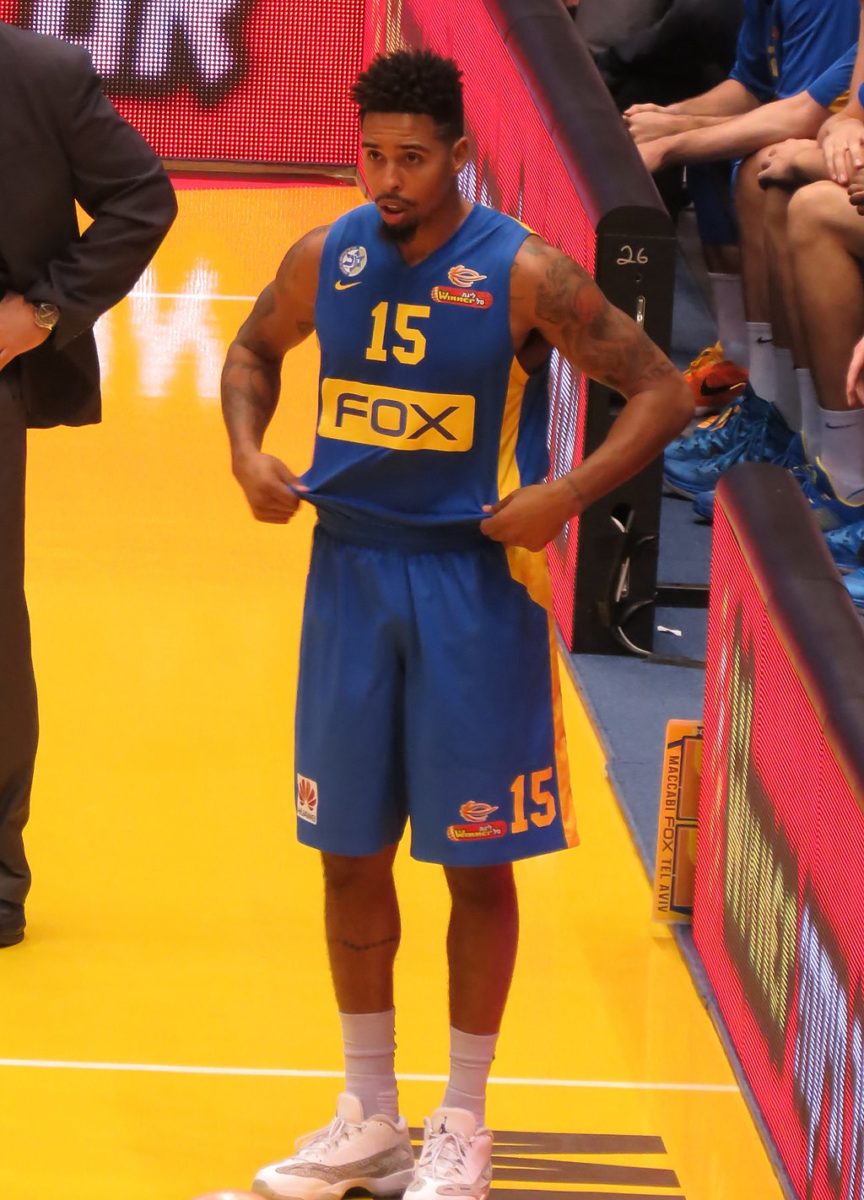Your Daily Phil: Disability inclusion, post-Ruderman + Why day school scholarship funds are not just for billionaires
Good Friday morning!
The digital transformation accelerated by the pandemic signals a promising future for crowdfunding, a form of digital fundraising exemplified by GivingTuesday, which raised $808 million in 2020, up from $10.1 million in 2012, according to a new report released yesterday by the Indiana University Lilly Family School of Philanthropy.
The report defines crowdfunding as initiated by an individual on a specifically designed platform, compared with social media fundraising created by nonprofit organizations to promote their cause on bigger platforms like Twitter. Among its key findings: Crowdfunding donors tend to be younger, less religious and single relative to traditional donors, and nearly 20% of crowdfunding donors give to social justice causes.
Rekindle, a social justice nonprofit founded by two residents of Cleveland, is starting a five-week program to bring its Black and Jewish communities together for dialogue and action-planning sessions. The group is a recipient of a microgrant from the Jewish Federation of Cleveland’s.
The Museum of Jewish Heritage has created a website that collects tributes to Holocaust survivors who lost their lives amid the global coronavirus pandemic. It features photos and obituaries, such as that of Harry Bialor, who died on May 7, a husband, father, grandfather and great-grandfather who survived the war as a child by hiding under a farmhouse.
The Coming to America Book Club is reading Motl the Cantor’s Son by Sholem Aleichem as part of a multi-session program in New Orleans discussing Jewish and Latino experiences of immigration. Presented by the Jewish Federation of Greater New Orleans, the club is part of a national program developed by the Yiddish Book Center.
FIELD SURVEY
Disability-inclusion advocates ponder the future, post-Ruderman

Foundation for Jewish Camp
In September, after two decades at the forefront of disability inclusion, the Ruderman Family Foundation announced that it had achieved its goals in the field and was in search of another signature issue. Now, advocates, activists, funders and organization professionals are trying to understand the extent to which the foundation’s work created a shift in thinking in practice. If that shift is shallow or spotty, Ruderman programs that haven’t found other support might wither on the vine, leaving people with disabilities and their families feeling alienated and abandoned. “The Ruderman Family Foundation was an inspirational leader,” Reuben Rotman, CEO of the Network of Jewish Human Services Agencies, told eJewishPhilanthropy. “Organizations are not going to stop providing services. The disability field is still here,” he said.
Theory of philanthropy: It’s understandable that the foundation would want to change its focus at this point, said Rotman: “No foundation wants to fund something in perpetuity. Philanthropy provides the nonprofit with the risk capital to experiment and refine and pilot. Then the agency figures out, how do we sustain this.” Some Ruderman initiatives have ended, however. At Hillel International, the “Inclusion Ambassadors” program, which began in 2017 with a $750,000 Ruderman grant and trained undergraduates to encourage inclusion on campus, has concluded, Hillel spokesman Matt Berger said. Hillel is still working on the issue, he said, by holding a session on inclusion at its virtual college fair, and providing live captioning for all online programming.
Synagogue status: Both Rotman and Shelly Christensen, an inclusion consultant based in Minneapolis who co-founded Jewish Disability Advocacy and Inclusion Month 12 years ago, said synagogue life was a priority for the Ruderman Family Foundation. The foundation helped the Union for Reform Judaism (URJ) create a website that contained resources and a list of congregations that were good examples of inclusion. United Synagogue of Conservative Judaism (USCJ) congregations received support to audit and improve their facilities. Neither the URJ or the USCJ responded to questions about whether those programs still exist in some form. Christensen said she worries about the persistent conviction that inclusion requires external funding. That might mean that the culture shift the Rudermans were trying to achieve is not yet complete, she said.
Tuition incentives
Day school scholarship funds: Not just for billionaires

Representatives from The Consortium of Jewish Day Schools (CoJDS), Maimonides Jewish Day School, SAMIS Foundation, Jewish Federation of Greater Portland, Portland Jewish Academy and Maayan Torah Day School meet in Portland, OR, February 27, 2020
“Day schools have proven to be the most effective method of Jewish engagement to create a long-term connection to Judaism and the Jewish community. The question is does this need to translate into an unreasonable burden for middle-class families?,” writes Rabbi Hillel Adler in an opinion piece for eJewishPhilanthropy.
The big question: “Can we develop a targeted system whereby families interested in a day school for their children but not willing to make tremendous financial sacrifices still enroll their children? The short answer is yes, and we have the experience to prove it. What is even more encouraging is that it does not require a multimillion-dollar fund to make a difference. Our experience has shown that a scholarship between $1,000-$2,000 can make the difference between a child in a public school vs. a Jewish day school.”
The Portland Model: “In 2016 the Consortium of Jewish Day Schools (CoJDS) funded a targeted scholarship program offering assistance to principals negotiating tuition for parents ‘on the fence’ between choosing day school over public school for their children. Since that initial year, CoJDS has provided 245 scholarships to 23 schools to help bridge the gap at the cost of $1,000-$2,000 per child.”
Shaping the future
A nonprofit prophecy for the post-pandemic world

Shutterstock
“While none of us can predict the future, it seems only fitting for me to try and offer you my take on what the post-pandemic world may hold for nonprofit organizations,” Natasha Dresner writes in an opinion piece for eJewishPhilanthropy.
The “New Normal”: “Everyone is talking about what that’s going to look like. It is only natural for us humans to strive for and want ‘normal,’ which is what I think this term is really about – our desire (wishful thinking) for normalcy. The reality is that we have not and are not going to have a lot of normal, but we will continue to have a lot of new.”
More need: “It’s going to take a while longer for our economy and society, in the U.S. and the world, to recover and find its balance. As a result, we are going to continue to see increases in the various needs that nonprofits fill, especially with vulnerable populations and minorities.
Lay leadership opportunities: “Let’s be honest, nonprofit organizations were not perfect about recruiting new blood and creating a solid lay leadership pipeline before COVID-19. As a result, many are finding themselves now with lots of burned-out long-term volunteers who stepped up during the last year and stretched themselves thin.”
Sponsored content
Thank you JCRIF funders

JCC Association
“It seems somehow fitting that we just celebrated Pesach not long after having marked the anniversary of the onset of the COVID-19 pandemic. Though our organizations continue to face the effects of this difficult year, they were made easier because of your leadership, partnership, and most generous support in founding and funding the Jewish Communal Response and Impact Fund,” write the lay and professional leadership of Foundation for Jewish Camp (FJC), Hillel International, JCC Association of North America, Prizmah Center for Jewish Day Schools and Repair the World in a public letter to the the Jewish Communal Response and Impact Fund funders.
Shining example: “In short order, your endeavors produced tens of millions of dollars of zero-interest loans that made it possible for many to endure the onerous financial challenges and constraints we faced in communities from coast to coast.”
Worthy Reads
Subtle Tactic: In the Chronicle of Philanthropy, Eden Stiffman reports that some charities use an opt-out mechanism to increase the size of a recurring gift, a practice experts criticize as potentially counterproductive, even as it can increase revenue in the short term. Plan International USA, a children’s rights organization, experimented successfully with this tactic by communicating frequently with donors about the pending increases. But widespread adoption could cause problems: “These kinds of strategies sow mistrust and provide fodder for nonprofit critics,” one expert said. [ChroniclePhilanthropy]
New Home: A Warsaw-based charity run by Jewish millennials, From the Depths, is arranging housing for impoverished, elderly Belarussians, such as 90-year-old Lyubov Arkhiptsova-Volchek, who helped rescue Jews during the Holocaust, writes Cnaan Liphshiz in JTA. From the Depths also recovers repurposed Jewish gravestones in Poland and has restored a Torah that a Jewish family left with a neighbor for safekeeping during the Holocaust. “The plan is to have them live in greater comfort, but also involve them in community life so they don’t feel lonely,” Babruisk Chief Rabbi Shaul Hababo said. [JTA]
Sunrise, Sunset: In a blog post on the website of the Stanford Social Innovation Review, Donna M. Butts and Shannon E. Jarrott ask why “intergenerational shared sites” — which combine facilities for the care of both older people and children — are so rare in the United States. The problem: funding designated only for one group or the other, and cumbersome regulations. Policymakers and service providers must spread the word, advocate for new legislation and develop allies, Butts and Jarrott say: “Intergenerational shared sites increase the health and well-being of both young and older participants, reduce social isolation, and create cost efficiencies. They are joyful places.” [SSIR]
Systemic Problem: The MacArthur Foundation’s $100,000 grant contest, 100&Change, has announced its second winner — Community Solutions, an organization that fights homelessness, states Philip Rojc in Inside Philanthropy. The group will expand “Built for Zero,” its initiative to end homelessness in 75 American communities, which emphasizes data and public health as part of an approach that views homelessness not as a separate problem but as an outgrowth of other problems. “This is not a problem of broken people, but of broken systems — fragmented responses to a number of problems that have allowed people to crash through the floor of our safety net,” said Rosanne Haggerty, president of Community Solutions. [InsidePhilanthropy]
Community Comms
Fellowship: Nominate a Jewish professional for Hadar’s Jewish Wisdom Fellowship. Deadline is April 14.
Apply! The Jewish Council of the Emirates Community Centre seeks a Dubai-based Executive Director.
Apply! The Kirsh Foundation seeks a full-time NY-based Program and Special Initiatives Coordinator.
Apply! Want to join the team at Jewish Insider/eJewish Philanthropy? We’re looking for a top-notch philanthropy editor. Learn more here.
Be featured: Email us to inform the eJP readership of your upcoming event, job opening, or other communication.
Word on the Street
The Health Ministry is considering issuing permits to the first tourists to enter Israel in over a year… Amid the pandemic, Red Nose Day has shifted to year-round fundraising… An initiative from Jewish Book Week (U.K.)will match emerging writers with mentors and provide financial assistance to conduct research… Marking Holocaust Remembrance Day, the first Jewish prayer space has been opened at Babyn Yar…
Pic of the Day

Israeli American Council
Grammy Award-winning violinist Miri Ben-Ari playing the Israeli national anthem in a just-released video.
Birthdays

Botend via WikiMedia Commons
Basketball player for the Zhejiang Golden Bulls of the Chinese Basketball Association, Sylven Landesberg on Saturday…
FRIDAY: Retired singer-songwriter, satirist and mathematician, Tom Lehrer… Board certified internist in Burbank, California, Lester S. Garfinkel… President emeritus of the Duberstein Group, Michael S. Berman… Retired fighter pilot and brigadier general in the Israeli Air Force, listed in the Guinness Book of World Records as the oldest-ever and longest serving combat pilot, Uri Gil… EVP of real estate and business development at KB Home and chair of the Jewish Federation of Greater Los Angeles, Albert Zane Praw… Fashion designer, Marc Jacobs… President of CNN Worldwide and chairman of Warner Media News and Sports, Jeff Zucker… Visual and performance artist, Alex Kahn… Attorney and commentator, Debbie Schlussel… Clinical psychologist in Boca Raton, Dr. Lori Gutmann Fineman… Senior program manager in marketing operations at Freddie Mac, Jill Gershenson-Cohen… Director of communications for David Weprin’s campaign for NYC Comptroller, Ross M. Wallenstein… Actress and writer, Rachel Sarah Specter… Israeli actress, Moran Atias… Former associate at White & Case, now owner of D.C.’s Baked by Yael, Yael Krigman… Film and television actress, Lili Mirojnick… VP at Nili Capital Partners, Soraya Hoberman… Figure skater who competed for Israel at the 2018 Winter Olympics, Paige Conners…
SATURDAY: Past president of the U.S. Soccer Federation, Alan Rothenberg… Author and former senior editor at The New Yorker and a deputy editor of the Outlook Section in the Washington Post, Jeffrey Frank… Author of 265 books including 56 books in the Cam Jansen series, 68 biographies and books for youth on the Holocaust, David Abraham Adler… Former member of the Knesset, Haim Ramon… Founder of Gantman Communications, Howard Gantman… Scarsdale, NY resident, Robin Samot… Soviet-born Israeli-American pianist, Yefim “Fima” Bronfman… Member of Knesset for Likud since 1999, Yuval Steinitz… Author of three books and chief national correspondent at Yahoo News, Lisa Belkin… Author of five best-selling memoirs and five novels, Dani Shapiro… Editorial director for audio for New York Magazine, Hanna Rosin… Former Governor of Missouri, Eric Greitens… President of NJI Media and co-founder of FamousDC blog, Josh Shultz… Movie producer, Jordan Horowitz… Director of Communications at RespectAbilityUSA, Lauren Appelbaum… Bristow Fellow in the Office of the Solicitor General of the U.S., Yishai Schwartz… Senior partnerships manager in the Bureau of Educational and Cultural Affairs at the U.S. State Department, Shelley Greenspan… Associate at Eversheds Sutherland, Daniel Wolman…
SUNDAY: Actress Louise Lasser… Pulitzer Prize winning journalist and columnist, Ellen Goodman… Founder and CEO of the USA Network, Kay Koplovitz… Sarita Dery… Former deputy director of WomenStrong International, Sydney Rubin… Managing partner and a founder of LA-based law firm Glass & Goldberg, Marshall F. Goldberg… Member of the Pennsylvania House of Representatives, Dan B. Frankel… Executive chairman of Visy Industries and Pratt Industries US, Anthony Pratt… Executive chairman of The Estée Lauder Companies, William P. Lauder… Professor at Sarah Lawrence College, Glenn Dynner… Co-founder of Caracal Global Strategies and founder and CEO of Brigadoon, Marc A. Ross… Israeli-based angel investor and entrepreneur, David Galper… Head of U.S. rates sales at Citadel LLC, he was previously a Major League Soccer midfielder, Jordan Cila…








